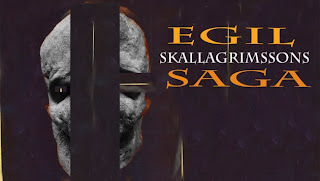Saturday was the seventh panel I'd moderated at a Bouchercon, the most fun I've had while dressed in respectable clothes, and it almost never happened.
The panel, called "Murder Is Everywhere," was on the docket for 10:15 a.m., and the previous panel ran over. When the moderator thanked the guests and dismissed the audience, one of his panelists plunged off the back of the stage and required brief medical attention. "Oh, great," I thought. "More delays." Happily a small bandage and a few stitches were all the falling panelist needed, and he was later able to joke about the mishap.
Once the stage was cleared of the wounded, Yrsa Sigurðardóttir, Jeffrey Siger, Stanley Trollip (one half of the duo that writes as Michael Stanley), Tim Hallinan, Lisa Brackmann (filling in for Cara Black), and I took over for fifty-five minutes of illuminating and entertaining verbal high jinks that went over the allotted time by no more than a minute or two.
 |
Bearer of appalling
animal parts |
I knew the panelists well, and some of them had expressed a desire to do things a little differently, so I tried to avoid questions I'd asked in the past. One got the panel members debating whose country, Iceland, Greece, South Africa, Thailand, Mexico, or China, was worst off. Yrsa's mention of the
surprising Icelandic food she had brought to this year's Bouchercon (pickled sheep's testicles) probably contributed to the fun.
 |
Your jovial moderator, photo
courtesy of Annamaria Alfieri |
Later, a launch party for Stuart Neville's
Ratlines included much beer and much good chat with a group that included
Ed Lin, an author new to me who has a book on the way from Soho Crime set in Taiwan. I am an impatient reader, ready to set aside a book that does not grab me from the first word. This will not be a problem with
Ratlines.
Earlier, lunch with Jennifer Jordan, Christa Faust, and Sean Chercover included thought-provoking discussion of what Dr. Faust called "sexualization of the other in porn."
Finally, thanks to the gang who organized Thursday's
Snubnose Press edition of Noir at the Bar. Food-service delays forced me to miss most of the event, but I did arrive for the last two readers and the traditional closing salutation of "
Fuck Peter Rozovsky!"
© Peter Rozovsky 2012Labels: Bouchercon 2012, Christa Faust, conventions, Ed Lin, Jeffrey Siger, Jennifer Jordan, Lisa Brackmann, Michael Stanley, Noir at the Bar, Sean Chercover, Stuart Neville, Timothy Hallinan, Yrsa Sigurðardóttir

































